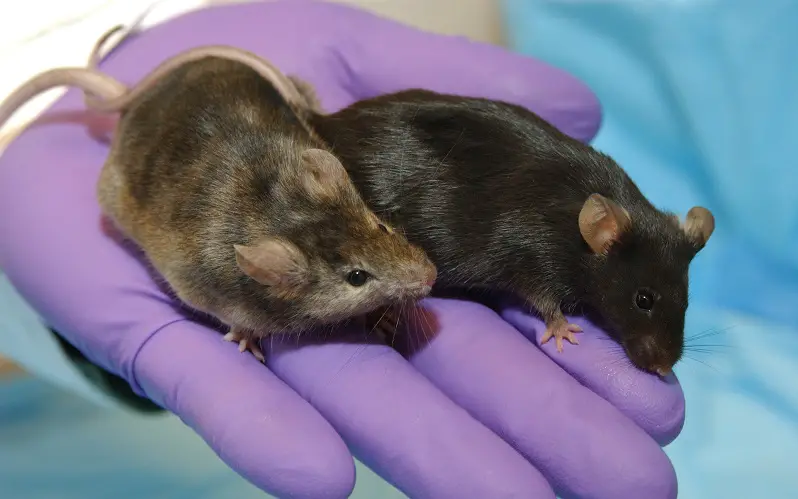Big Biotech corporations and their allies in the U.S. government are fond of boasting about how oft-tested genetically modified organisms are, but can most of this research really stand up to outside scrutiny?
According to journalist Claire Robinson who authored this breakdown of a new database of GMO studies, the answer is a resounding “no.”
The article goes as far as to say that the new “big list of studies” provided by the pro-GMO group Biology Fortified, Inc. (BFI) is “demonstrably false,” while also discussing the results of a review by John Diels and colleagues, who found a shocking pattern of outright bias affecting the health risks and nutritional assessments of GMOs.

Studies on lab animals are always capped at 90 days by those in the GMO industry while independent studies find serious health problems after that period.
New Database Packed with Biased Pro-GMO Research
The new database of GMO studies, titled GENERA, was announced in a recent press release by BFI which implies that most GMO research is “government-funded and worldwide in scope.”
“These findings should turn the heads of people who thought it was skewed to private, U.S.-based laboratories,” the press release says.
But the subsequent headlines are being called a “misleading piece of spin” by Robinson, which noted the Diels study’s results from 2011 (before pointing out other more recent conflicts of interest occurring more recently):
Diels found that 47% of the studies had at least one author with a professional or financial affiliation to the GMO industry or an organization tied to it. The rest of the studies’ authors either had no such conflict of interest (39%) or gave insufficient information about funding sources to judge (14%).
According to Robinson, the “industry-linked studies were much more likely to find that the GMO was safe,” while those with no conflict of interest were more likely to reach less-than-favorable conclusions about the GMOs in question.
But the BFI doesn’t acknowledge this, instead touting their new database as an example of how “independently researched” GMOs supposedly have been.
Studies Show a Pattern of Harm from GMOs
While the industry standard for animal feeding studies are always capped at 90 days, several independent studies have shown harmful effects following this 90 day period, including the famous study by French researcher Gilles-Eric Séralini which showed large tumors and other serious internal health problems in rats.
The Séralini study was heavily criticized by pro-GMO interests immediately after publication, as the multi-billion dollar industry rushed to calm public fears and to protect its vast financial interests.
It was a classic example of how independent research is routinely attacked when it produces unfavorable conclusions on GMOs, and was eventually retracted from the journal it was originally published in, Food and Chemical Toxicology (but only after powerful pro-GMO interests rallied and organized against it).
Following the publication of the study in the journal, 11 of 13 letters to the editor actually had undisclosed financial relationships with Monsanto, including Paul Christou, the editor of Transgenic Research who is an investor on patents on GM technology, many of which Monsanto owns. At the journal itself, a new position for associate editor was actually created and filled by Richard E. Goodman, a professor from the University of Nebraska who previously worked for Monsanto.
The study was criticized for the type of rat that was used, but it was actually the same strain that Monsanto uses on its 90-day studies on GM foods and long-term studies of glyphosate, just utilized in a new type of study that went on for long than 90 days. This is just one instance of how double standards were used to “invalidate” the study’s findings.
A few months later, FCT’s publisher Monsanto announced that Seralini’s paper had been retracted in yet another textbook example of how the industry attacks independent science.
After a long political bout with the GMO companies, vindication came to Séralini and his team after a rigorous peer review led to the study’s republication recently, this time in the journal Environmental Sciences Europe.

A large percentage of GMO research is conducted by people with financial ties to Biotech, a GMWatch report says.
“Safety” Proclamations Ignore Red Flags on GMOs
Unfortunately, another key point the BFI’s database misses is just how glaring the lack of “official” 90-plus day studies are on GMOs.
As the Institute for Responsible Technology puts it:
Short studies could easily miss many serious effects of GMOs. It is well established that some pesticides and drugs, for example, can create effects that are passed on through generations, only showing up decades later. In the case of the drug DES (diethylstilbestrol), “induced female genital cancers among other problems in the second generation.” The authors urge regulators to require long-term multi-generational studies, to “provide evidence of carcinogenic, developmental, hormonal, neural, and reproductive potential dysfunctions, as it does for pesticides or drugs.”
And then there are the studies in the database with shocking conclusions that are not mentioned in the press release from the BFI.
One on GM potatoes found that rats had gut cell growth that resembled pre-cancerous conditions, and another found kidney and liver damage in rats fed GM Bt corn over three generations.
The BFI also mentions “unnamed systematic reviews” according to Robinson that claim GMOs are safe, but one particular review includes many serious defects including improper study classification, studies on fish and birds (which are not relevant to assessing human risks), including studies where animals were removed for unknown reasons that determined GMOs were “safe” and much more.
Considering the biased nature of both the organization behind this database and the financial and ethical conflicts of the researchers themselves, can we really trust the version of the truth the BFI is attempting to sell to the general public? Unfortunately some publications like AgProfessional have begun publishing headlines that align with the false narrative of “independently verified safety” pushed by the BFI, but there’s still plenty of time to call the pro-GMO organization out on their quest to bend the truth.
For more information on the misleading nature of the BFI’s “database of GMO safety studies,” and their aim to mislead the general public, check out Robinson’s article from the website GMWatch by clicking on this link.
RELATED READING: How Monsanto’s Own Lawyers Exposed What May Be Their Biggest Lie Yet
Thanks for installing the Bottom of every post plugin by Corey Salzano. Contact me if you need custom WordPress plugins or website design.




